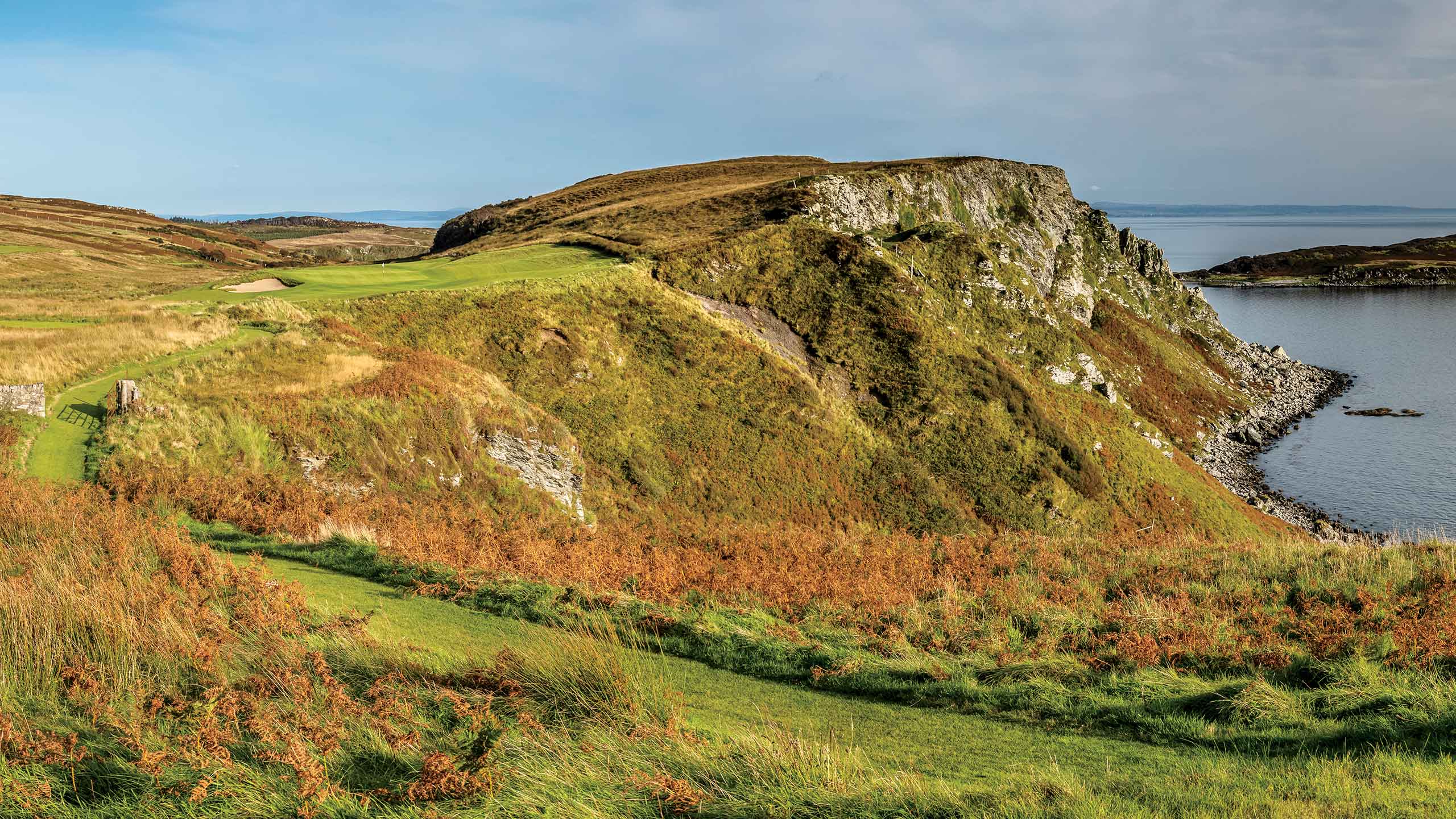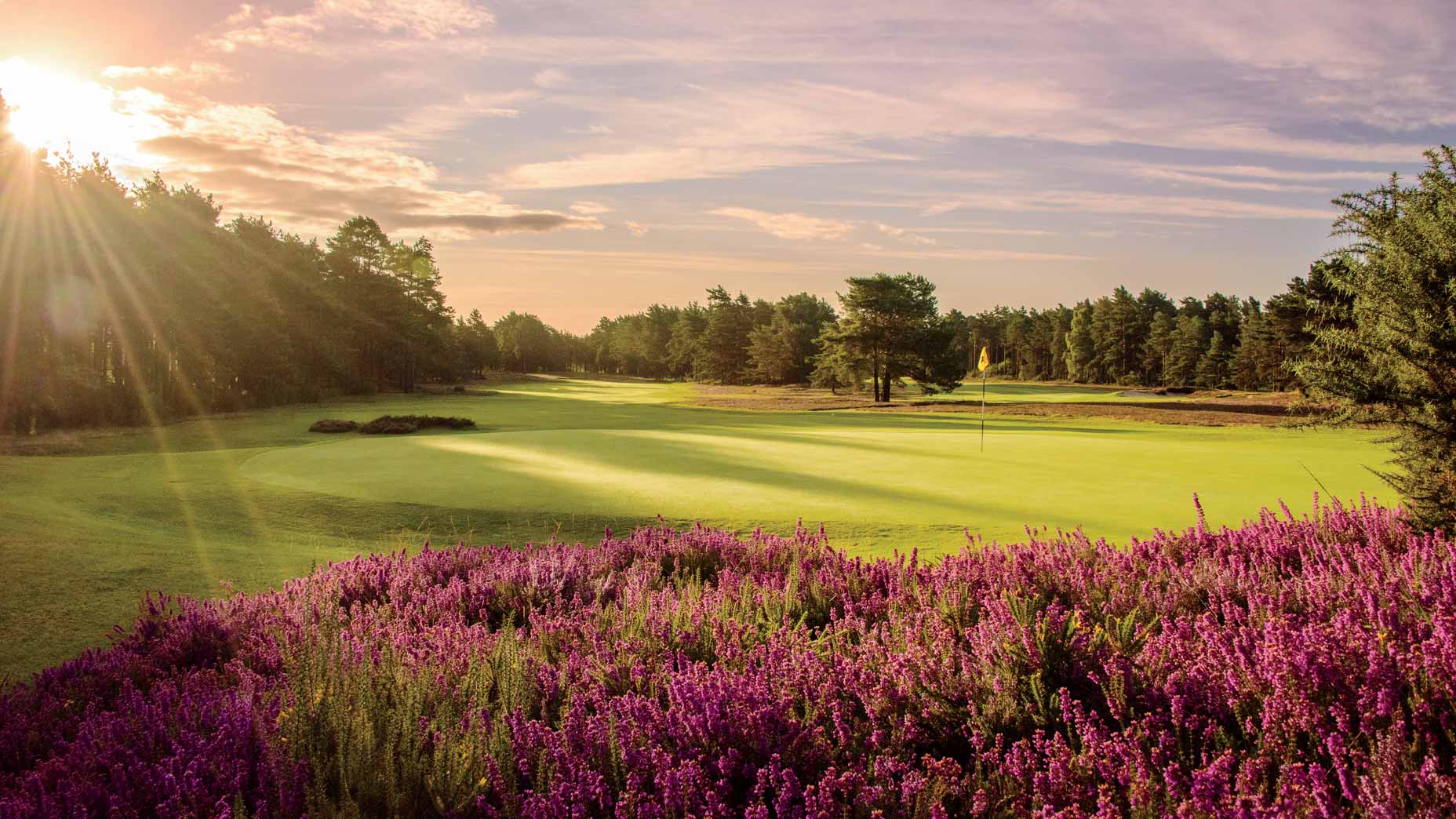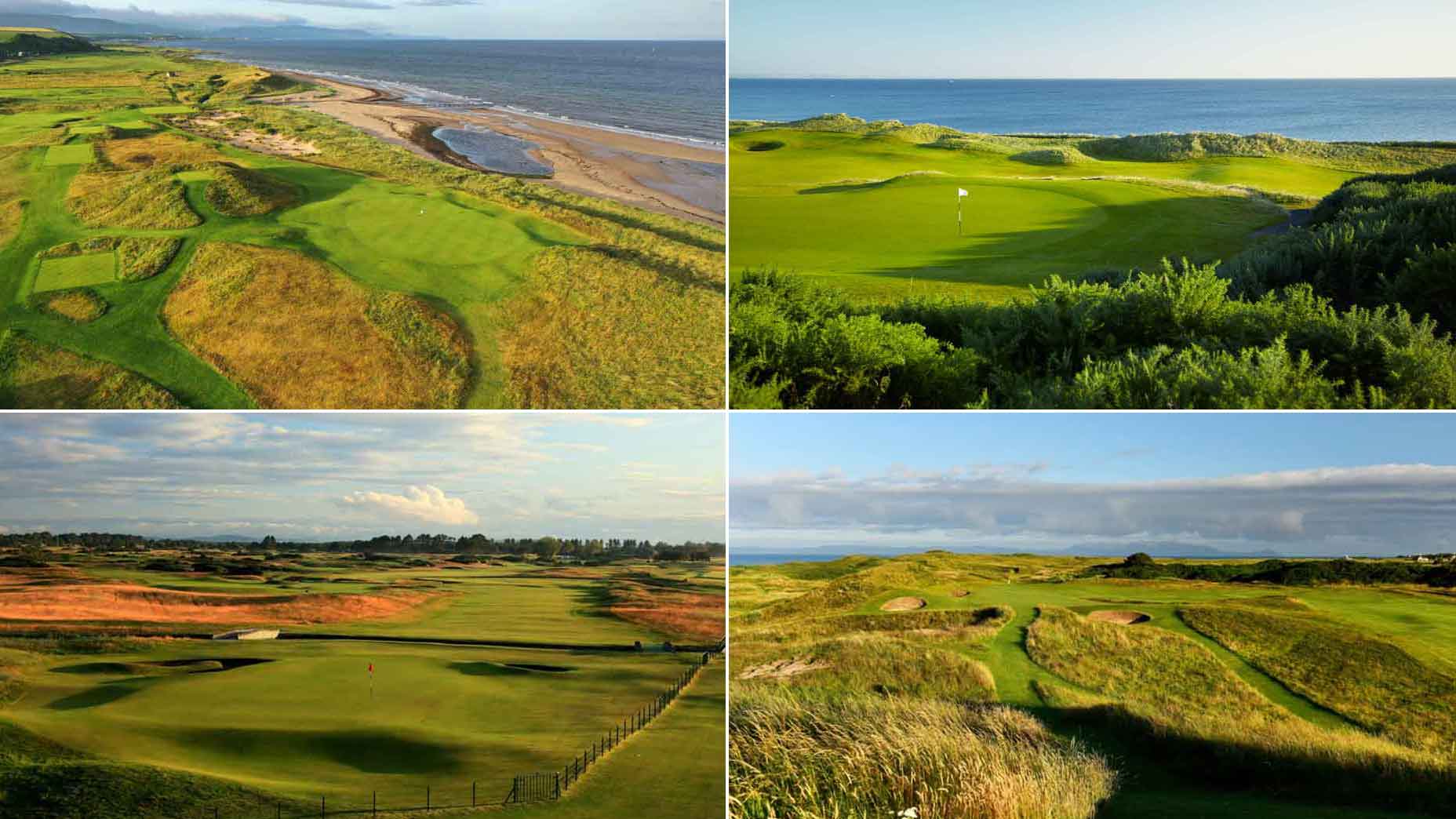5 must-see spots from GOLF’s Top 100 Courses in the UK and Ireland

Cruden Bay's 'Bathtub' ... and four other must-see holes on GOLF's Top 100 Courses in the UK and Ireland.
Brian Oar
There are a lot of course rankings out there. What’s the point? For starters, to educate golfers on all that this game can do to challenge your skill and — more importantly — your spirit. That’s exactly what makes GOLF’s inaugural rank of the Top 100 Courses in the UK and Ireland our most thrilling yet, spotlighting the obvious (i.e., the courses that have played host to the 149 previous Opens ahead of this July’s sesquicentennial), those that routinely pepper our World Top 100 and a few surprises. Golf here is, well, as bloody good as it gets.
Golf’s old world is, well, old. In the UK and Ireland, history tumbles through the fairways and greens like a heavy eastern wind. Drive down one of the old country’s winding (and narrow) roads, and you’ll stumble upon classics from some of golf’s founding fathers. Names like Morris, Park and Braid are attached to courses that date back to golf’s first days.
Quirk is not a feature but a necessity of golf life in the old country. The neatly trimmed fairways and tightly mown greens of modern American creation were not an option to those operating courses back in the early-19th century. Rather, grazing sheep were the only mowers, and routing was left mostly to mother nature. In those days, distractions like wildlife and stone structures were necessary evils — tools to be worked around, if not excluded altogether.
Eventually, as the sands of time wore on, so did golf’s great quirks, forming many of the features we have come to know (and love) about golf’s most historic tracks: The Road Hole, The Wall, and oh so many more memorable pieces of golf’s golden age.
In GOLF’s inaugural ranking of the Top 100 Courses in the UK and Ireland, our raters sought to follow the game’s forefathers by embracing weirdness. Below, we asked our raters to find quirks worth adding to every player’s golf bucket list, and they responded in kind with five beloved pieces of golf’s strange — and beautiful — tapestry. —James Colgan, assistant editor.
1. The Dell Green
Lahinch (Old Course), Clare, Ireland (Rank: 11)
In a word, the “Dell” hole at Lahinch—No. 5 on the card—is fantastic! It’s a midiron at its longest and has meted out the gamut of results you’d expect from a quirky, yet lovable, linksy par 3. I’ve witnessed a few “knifed” pitches that have back-boarded off the dunes only to trickle down onto the
green and into the hole. Most memorable, a buddy teed off with a 6-iron only to come up short.
He played a second ball—this time with a 5-iron—and jarred it! The anticipation in cresting the large dune, the potential for an ace and the variety of recovery shots mean the Dell—now 130 years young—hasn’t lost an ounce of its charm. —Patrick Glynn, Dublin, Ireland
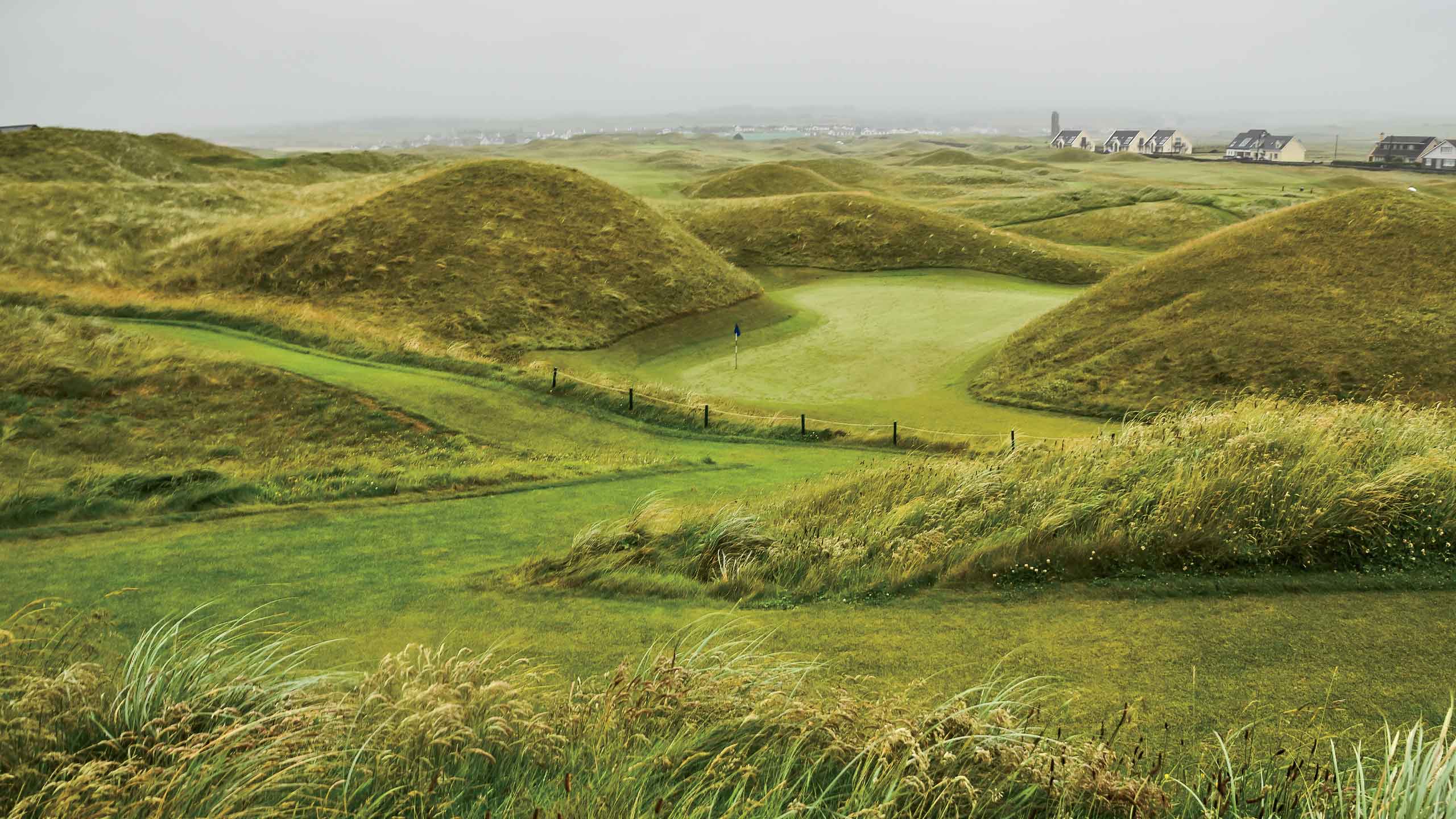
2. Cruden Bay’s Bathtub
Cruden Bay (Championship Course), Cruden Bay, Scotland (Rank: 20)
There are three factors that fascinate me when playing the blind approach to the “Bathtub” green at the end of Cruden Bay’s
par-4, 400-yard 14th. First, though hidden, you can catch a glimpse of the green from the 9th tee—a harbinger of things to come if there ever was one.
Second, the green is more than 50 yards deep, pressing you (or your caddie) to pull the right club. Lastly, you can use the downslope in front of the green to consistently “kick” the ball forward onto the green. Managed correctly, the slope can instantly become your new best friend. It’s a shot I never
tire of playing. —Barry Doyle, Denver, Colo.
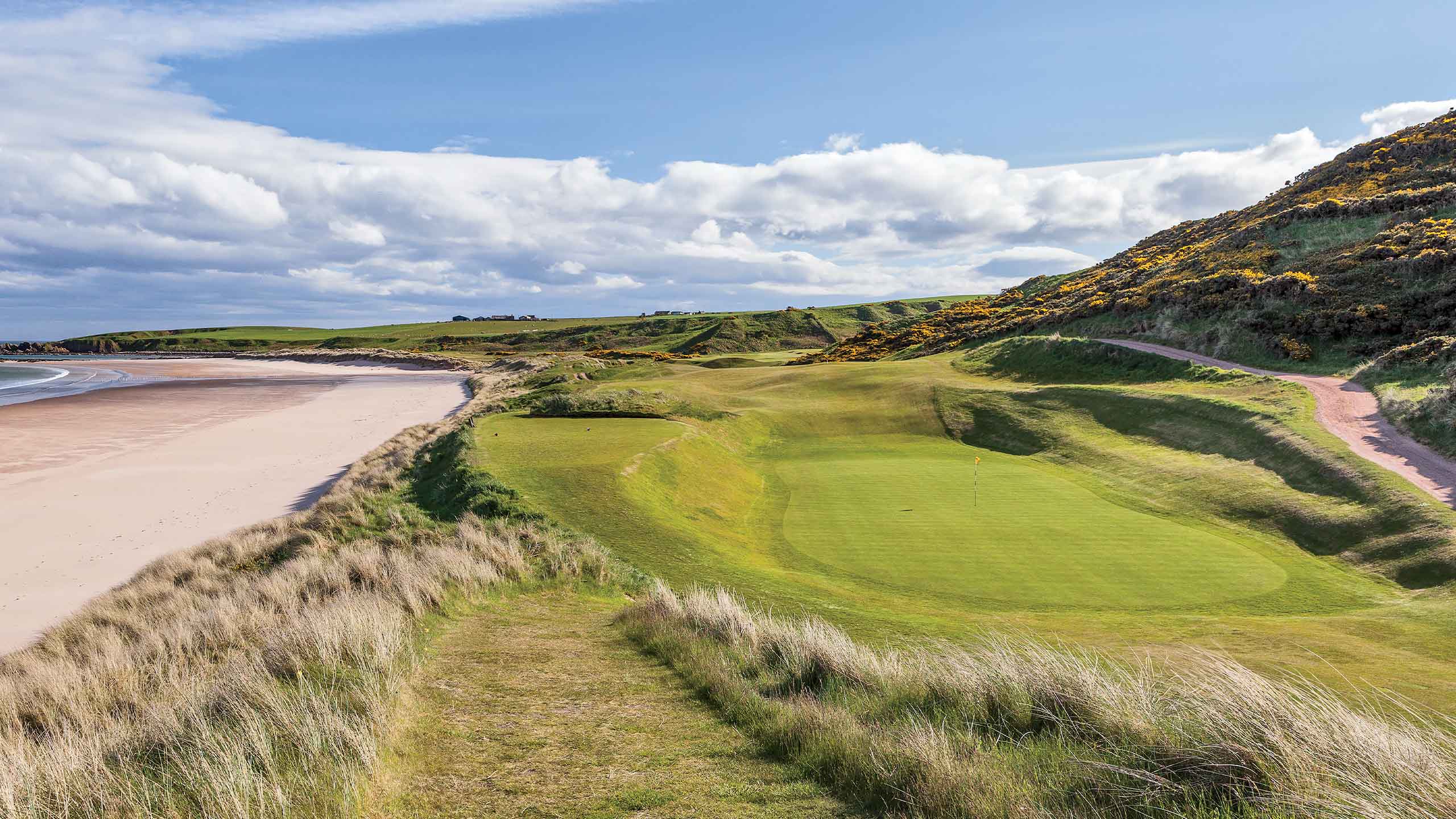
3. North Berwick’s Stone Wall
North Berwick (West Links), North Berwick, Scotland (Rank: 10)
Having grown up at North Berwick, I’ve seen my fair share of bizarre incidents at the 13th green, famously guarded by a two-foot wall. Trust me— anything can happen here, both good and bad.
A guest of mine from the States once managed to land his ball on top of the wall, defying physics. After much head-scratching, his caddie suggested
putter… which the player duly holed.
Welcome to the West Links, sir! —Simon Holt, Edinburgh, Scotland
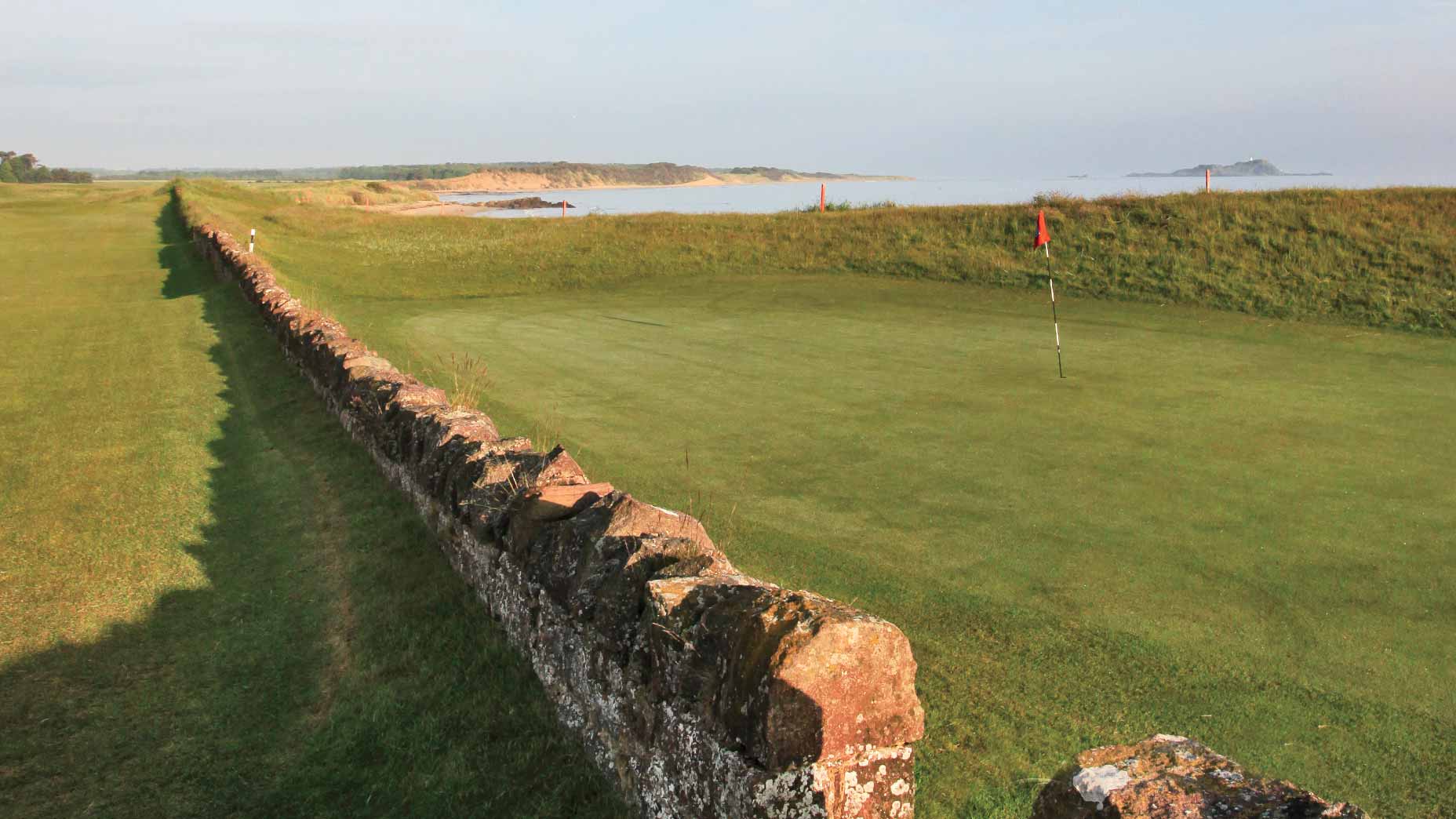
4. Brora’s ‘Common’
Brora Golf Club, Brora, Scotland (Rank: 63)
Brora has become a bit of a cult classic.
There’s a continuing sense of adventure here, which peaks on the shortish par-4 16th, whose green rests high on a plateau. With man and animal in collaboration, its barely defined fairways might just be the perfect surface for golf. —Clyde Johnson, St. Andrews, Scotland
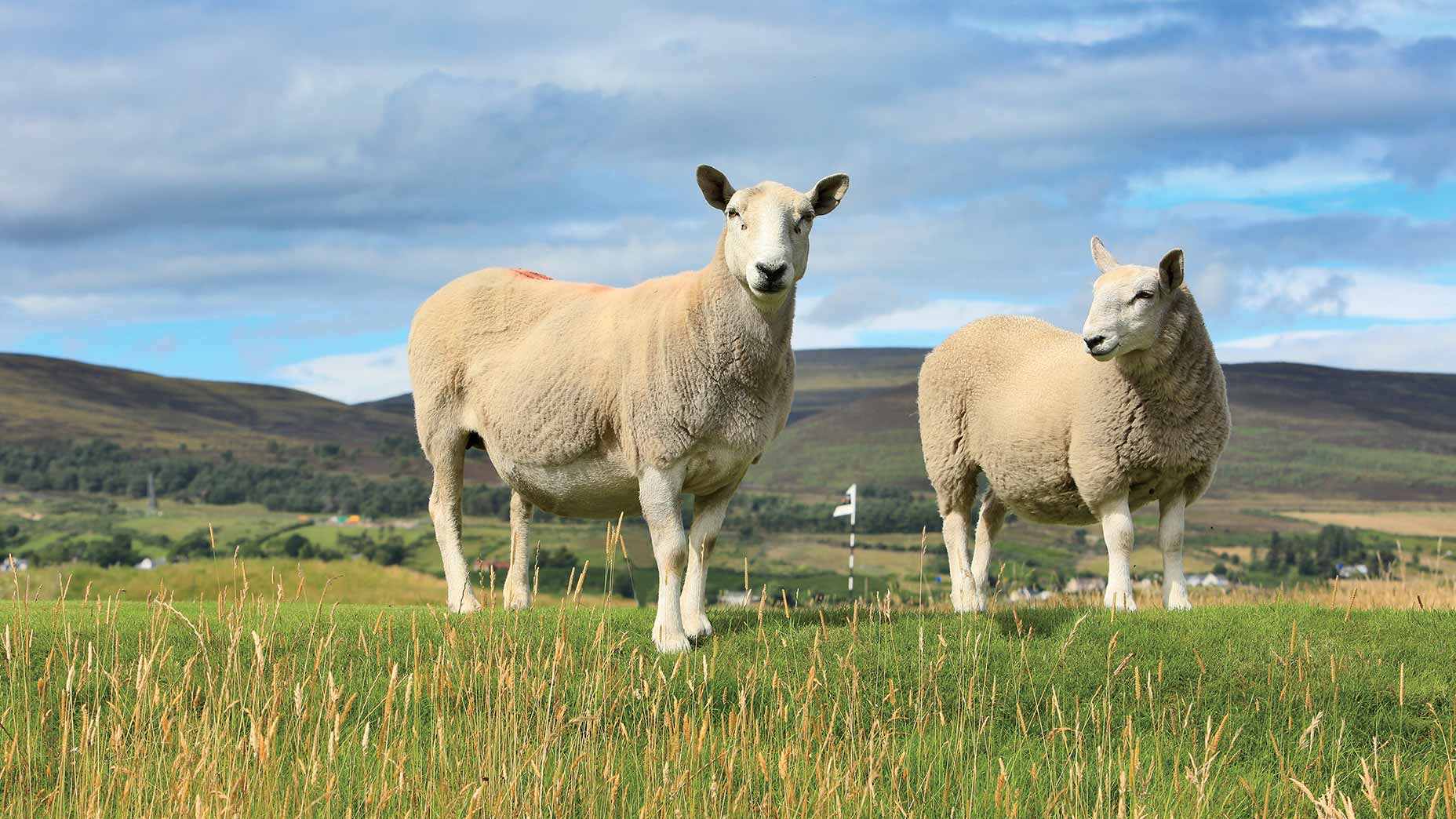
5. Ardfin’s ‘Chasm’
Ardfin, Scotland (Rank: 25)
It’s on the 2nd tee at Ardfin where you begin to fully appreciate the scale and wildness of the place. (Our group joked that Hollywood could shoot Braveheart 2 right then and there without touching a thing!)
This par 3 calls for a hybrid or a 7-iron, depending on the wind. Regardless, you’re forced to carry a deep ravine—the “Chasm”—to a green seemingly carved out by Mother Nature herself. Some courses make you feel small. Ardfin makes you feel tiny. —Christian Faergemann, Hellerup, Denmark
